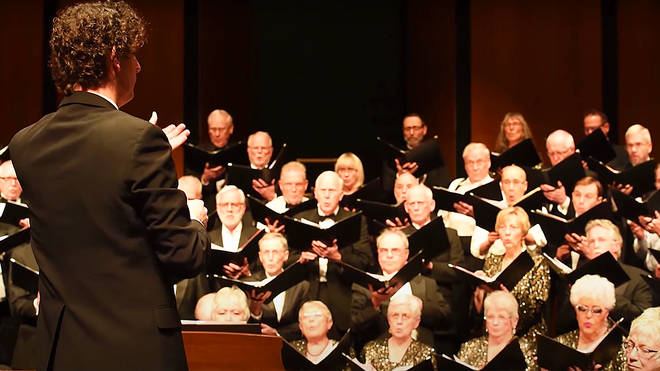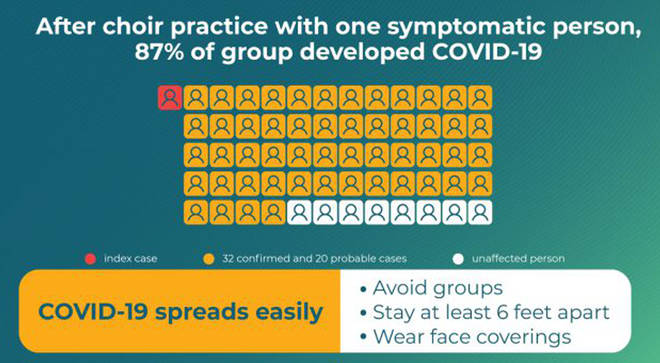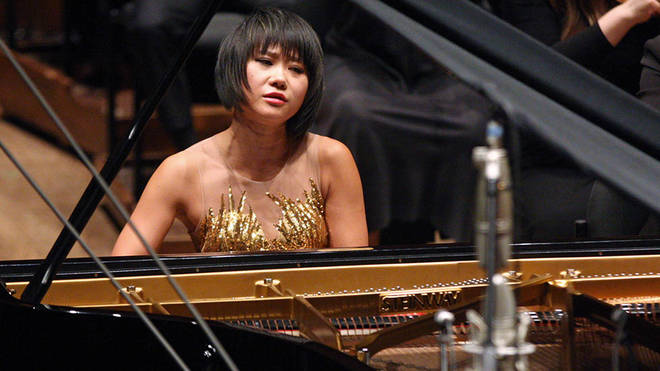... caused the ‘superspread’ of 52 coronavirus cases
By ClassicFM London

The infamous choir rehearsal, held two weeks before Washington State’s lockdown, infected 52 singers with coronavirus and resulted in two deaths.
A choir practice that infected 52 singers with and resulted in two deaths is now being described by US health authorities as a “superspreader” of the virus.
The outbreak, first reported in the in March, occurred during a two-and-a-half-hour rehearsal at a church near Seattle.
Now a new , led by staff at Centers for Disease Control and Prevention, confirms the practice was attended by 61 members of Washington State’s Skagit Valley Choral, including a symptomatic patient, 32 confirmed cases and 20 probable secondary cases. Of those members, three were hospitalised.
The study suggests the outbreak was ‘likely facilitated by close proximity (within 6 feet) during practice and augmented by the act of singing’.

At the rehearsal, choir members had no physical contact but sat close together. The study says a fine mist of virus particles, emitted through singing, might have contributed to the outbreak.
It also transpires that one singer felt unwell at the time of the practice, but was unaware they had the virus.
Although the choir members said they had no physical contact, some snacked on cookies and oranges towards the back of the church during the 15-minute break and others arrived early to help set up chairs – which were arranged in six rows of 20 chairs each, spaced 6-10 inches apart.
The singers who fell ill with COVID-19 – who were mostly women, with an average age of 69 – reported flu-like symptoms from one to 12 days after the rehearsal.
Self-isolating choir members sing new psalm ‘in time of coronavirus’
To control the spread of COVID-19, the scientists have concluded that “superspreader” events such as choir and orchestra rehearsals are best avoided in the current climate, saying in the case of this rehearsal: “choir practice attendees had multiple opportunities for droplet transmission from close contact”.
If music groups must get together, scientists advise “physical distancing” and “wearing cloth face coverings”.
They also suggest bringing awareness to music groups, to discourage symptomatic patients from attending rehearsals and potentially infecting other singers and musicians. And where social distancing and wearing masks is not possible, singers are being advised to “wash hands often, cover coughs and sneezes, and frequently clean and disinfect high-touch surfaces.”








